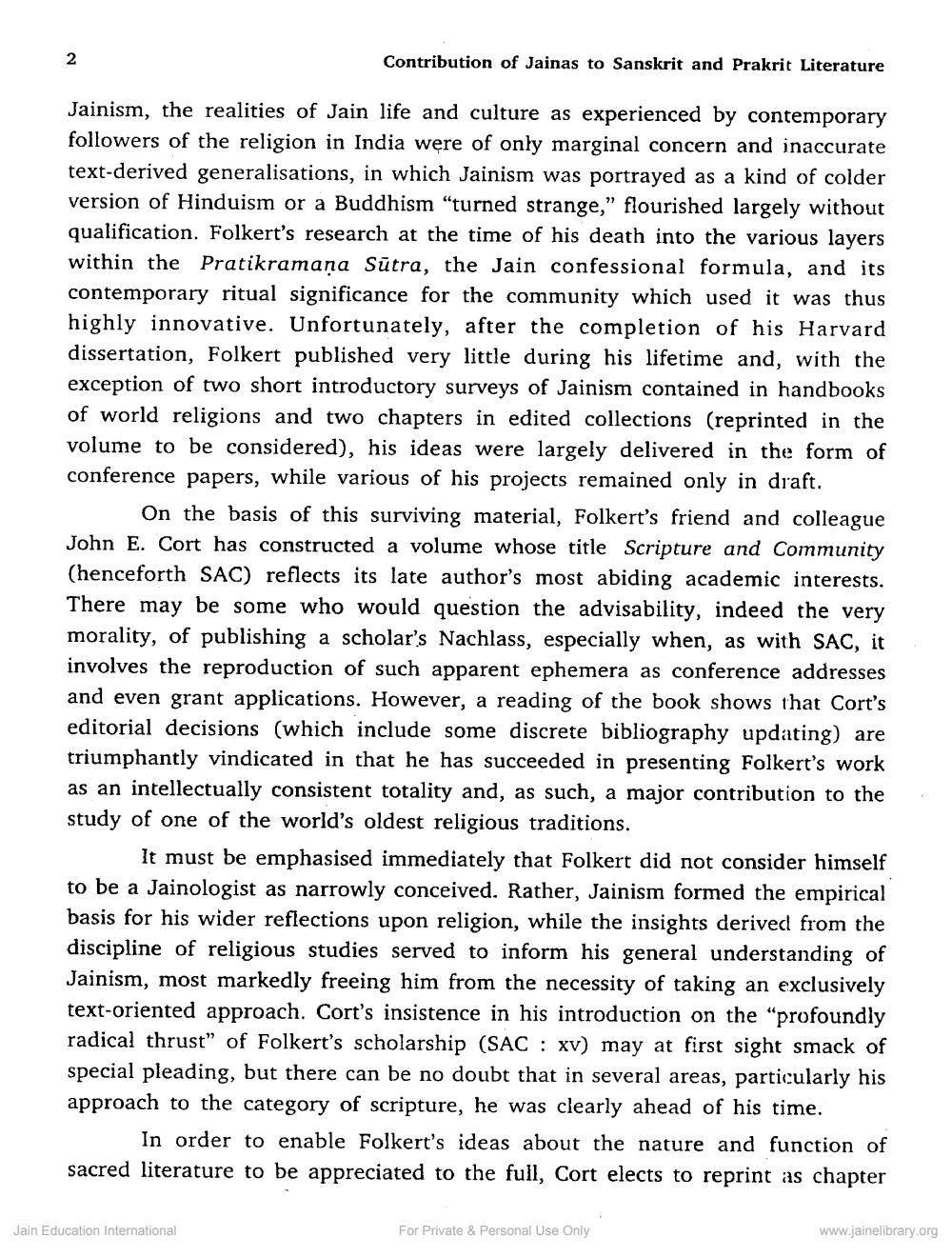________________
Contribution of Jainas to Sanskrit and Prakrit Literature
Jainism, the realities of Jain life and culture as experienced by contemporary followers of the religion in India were of only marginal concern and inaccurate text-derived generalisations, in which Jainism was portrayed as a kind of colder version of Hinduism or a Buddhism "turned strange,” flourished largely without qualification. Folkert's research at the time of his death into the various layers within the Pratikramana Sūtra, the Jain confessional formula, and its contemporary ritual significance for the community which used it was thus highly innovative. Unfortunately, after the completion of his Harvard dissertation, Folkert published very little during his lifetime and, with the exception of two short introductory surveys of Jainism contained in handbooks of world religions and two chapters in edited collections (reprinted in the volume to be considered), his ideas were largely delivered in the form of conference papers, while various of his projects remained only in draft.
On the basis of this surviving material, Folkert's friend and colleague John E. Cort has constructed a volume whose title Scripture and Community (henceforth SAC) reflects its late author's most abiding academic interests. There may be some who would question the advisability, indeed the very morality, of publishing a scholar's Nachlass, especially when, as with SAC, it involves the reproduction of such apparent ephemera as conference addresses and even grant applications. However, a reading of the book shows that Cort's editorial decisions (which include some discrete bibliography updating) are triumphantly vindicated in that he has succeeded in presenting Folkert's work as an intellectually consistent totality and, as such, a major contribution to the study of one of the world's oldest religious traditions.
It must be emphasised immediately that Folkert did not consider himself to be a Jainologist as narrowly conceived. Rather, Jainism formed the empirical basis for his wider reflections upon religion, while the insights derived from the discipline of religious studies served to inform his general understanding of Jainism, most markedly freeing him from the necessity of taking an exclusively text-oriented approach. Cort's insistence in his introduction on the “profoundly radical thrust” of Folkert's scholarship (SAC : xv) may at first sight smack of special pleading, but there can be no doubt that in several areas, particularly his approach to the category of scripture, he was clearly ahead of his time.
In order to enable Folkert's ideas about the nature and function of sacred literature to be appreciated to the full, Cort elects to reprint as chapter
Jain Education International
www.jainelibrary.org
For Private & Personal Use Only




